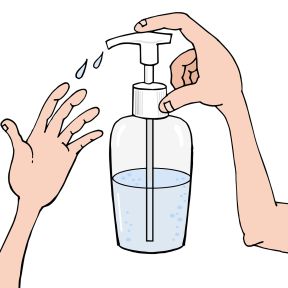

A psychological evaluation is a professional assessment of an individual to determine if a diagnosis of a mental health disorder can be made and, or to further understand elements of an individual's personality or social emotional functioning. Psychological evaluations are often conducted to determine the possible source of a child’s academic or social problems, in which case they may be referred to as psychoeducational testing. Psychological evaluations may also be ordered by a judge or court to determine if a person is competent to stand trial, or to determine if a parent should receive full or partial custody of a child after a divorce.
Psychological evaluations may be suggested by someone’s primary-care physician, social worker, teacher, principal, or therapist; ordered by a court; or required by an employer, particularly in law enforcement, aviation, or other careers with especially high stress or the potential to put other lives at risk. But they may also be recommended by a friend or loved one concerned about someone’s behavior or outlook. And often an individual seeks an evaluation themselves if they become concerned about their levels of anxiety, lowered mood or lack of enjoyment of life, reduced social interactions, or if they are worried about poor sleep or declining ability to concentrate and complete tasks.
Why would an adult seek an evaluation? Created with Sketch.A psychological evaluation can help an adult experiencing distress, agitation, anxiety, fear, or depression determine the potential cause as well as the severity of the concern. Psychological testing and evaluation can also be essential for determining the presence or extent of a stroke, a brain injury, a personality disorder, an intellectual disability, or a cognitive disorder such as Alzheimer’s or dementia.
Why would a child receive a psychological evaluation? Created with Sketch.A child who is having social, behavioral, or academic problems may be living with a learning disorder, ADHD, anxiety, or depression. Psychological testing can help a clinician rule out some conditions and make an accurate diagnosis, including whether a learning disability may be present. As early intervention is typically vital for the successful treatment of mental health disorders in children, an accurate assessment can be of great benefit to a family.
How are psychological evaluations used by the courts? Created with Sketch.A psychological evaluation may be ordered by a judge to determine if a suspect is mentally competent to stand trial, often specifically to answer the question of whether a mental health disorder may have led to their crimes or whether they have the intellectual capacity to tell right from wrong and understand the consequences of their actions.
By law, defendants need to be informed participants in their defense. If their attorney, or a judge, believe that a psychological illness or intellectual deficit inhibits their ability to understand their legal proceedings, a court-appointed psychologist may be asked to conduct an evaluation.
Substance-abuse or addiction evaluations may also be ordered by a court to determine whether an individual who committed an offense under the influence of a substance could or should be ordered to undergo substance abuse treatment, including involuntary commitment to a treatment facility.
In court, an attorney can challenge the findings of a clinical evaluation, even deposing the mental health professional who conducted it.
What’s the difference between a psychological evaluation and psychiatric evaluation? Created with Sketch.A psychiatric assessment is used to determine the presence or extent of specific mental disorders such as psychosis or schizophrenia, or for concerns such as suicidal ideation, for which clear diagnostic standards have been established.
Could a physical exam be part of psychological testing? Created with Sketch.Yes. A physical exam could help doctors rule out the presence of medical conditions that may appear to be psychological in nature; for example, a thyroid condition may masquerade as a mental health condition because the symptoms may lead to behavioral effects. In any event, a clinician administering a psychological exam is likely also to ask a client about their medical history and whether they take any prescription medications or over-the-counter drugs or supplements.
article continues after advertisement What an Evaluation InvolvesYears of research have led to the development of clinically approved psychological tests now used to determine the presence of a range of mental health concerns. A clinician may administer an IQ test, behavioral assessment, or personality assessment, or conduct a structured clinical interview, or a particular screening for a specific condition, such as depression. Sometimes, an evaluation will also include interviews with family members, teachers, or other close observers of someone’s personality or behavior. The goal is always the same, though: to help a mental health professional understand how a patient thinks and what they perceive and, with that information, to determine the source of their distress and ideally the best path toward treatment.
How can someone prepare for a psychological evaluation? Created with Sketch.They can’t, or at least they shouldn’t. As the tests are meant to determine a person’s authentic emotional or intellectual state, any preparation, such as searching for sample tests online and practicing answers, is likely to skew the results and prevent a clinician from making a proper diagnosis and delivering the help an individual needs. Besides, the tests do not have “right” or “wrong” answers; honest answers, whatever they indicate, are the best way to help a professional get a true sense of a client’s condition.
Where does an evaluation happen, and how long does it take? Created with Sketch.Psychological testing may take place in a hospital, a mental health facility, a school, a prison, or a clinician’s office. Some testing is relatively brief and may only require one visit, while others may run several hours over multiple visits at set intervals.
What happens during an evaluation? Created with Sketch.An individual will typically be asked to answer a set of standardized questions, often in the form of written questionnaires, surveys, or checklists often referred to as norm-referenced tests. In some cases, the testing may be oral, as a clinician asks an individual a set of questions from an established script or question set.
Sometimes, a client will complete a written test on their own and submit it to a mental health professional, who will review it and then discuss the findings in person at a follow-up visit.
A psychologist then uses information from the tests and/or their clinical interviews to produce a clinical evaluation or diagnosis, and to develop a treatment plan or provide referrals.
What Comes After an EvaluationAn evaluation is not the final word for a psychological diagnosis; it is one piece of the puzzle. An evaluation is always meant to answer a specific question. If the results of an assessment indicate that the client is likely not experiencing a particular condition, that information still has value, as it rules out one potential diagnosis, ideally focusing the continuing work to make a correct finding. A clinician may, in fact, ask someone to complete a battery of tests to make a better-informed diagnosis and treatment plan. The collected data should allow a clinician to capture an individual’s way of looking at the world and compare it to norms of behavior and emotional experience. The more detail, ideally the more specific a clinician can be in their recommendations; for example, advising a school or teacher of what specific accommodations may best enable a child with ADHD to continue to participate and learn in their classroom.
After assessment, treatment is the next step and, in some cases, stalled or unsuccessful treatment may lead a mental health professional to look in a different direction to determine the cause of an individual’s apparent struggles or concerns.
Essential Reads
"The Man with 1000 Kids" illustrates problems in the donor conception industry. While improved regulation is necessary, better education for recipients can mitigate many issues

What is the media talking about when they discuss presidential mental fitness? Here's a summary of what it is and why formal evaluation isn't likely to happen anytime soon.

Georges Simenon's Inspector Maigret, a therapist manqué, criticized the principles undergirding the DSM decades ago. His insights are still relevant today.

Assessment for autism, ADHD, or neurodiversity can be a lot to consider. Here's what to expect if decide to go forward.

Case formulation is a cornerstone of effective psychological practice, providing a deep, nuanced understanding of each client.
Case formulation is a cornerstone of effective psychological practice, providing a deep, nuanced understanding of each client.

Discover why personalized treatment plans are crucial for overcoming substance use disorders.
Discover why personalized treatment plans are crucial for overcoming substance use disorders.

Discover why seeing a psychiatrist before and during medication is vital. Learn how personalized care can transform your mental health journey and lead to better outcomes.
Discover why seeing a psychiatrist before and during medication is vital. Learn how personalized care can transform your mental health journey and lead to better outcomes.

There is seldom a "happily ever after" when you're in love with a narcissist.
There is seldom a "happily ever after" when you're in love with a narcissist.

What do therapists find most valuable in their own therapy—and what does it mean for their clients? A new study reveals surprising answers.
What do therapists find most valuable in their own therapy—and what does it mean for their clients? A new study reveals surprising answers.

New work proposes that individuals with OCD have difficulty accessing their internal states. To circumvent this, they activate “proxies” in the form of rigid rituals.
New work proposes that individuals with OCD have difficulty accessing their internal states. To circumvent this, they activate “proxies” in the form of rigid rituals.

New findings on "dark creativity," starting with lack of guilt.
New findings on "dark creativity," starting with lack of guilt.

When considered across a lifetime, no within-person association exists between religiosity and psychological well-being.
When considered across a lifetime, no within-person association exists between religiosity and psychological well-being.

If you are using social media as your source of information, read this first. Only one in five ADHD-related TikTok videos studied was deemed based on "useful" information.
If you are using social media as your source of information, read this first. Only one in five ADHD-related TikTok videos studied was deemed based on "useful" information.

New research on how we explain well-being, or its lack.
New research on how we explain well-being, or its lack.
Psychological Evaluation ResourcesFind a therapist near me.
Connected Topics